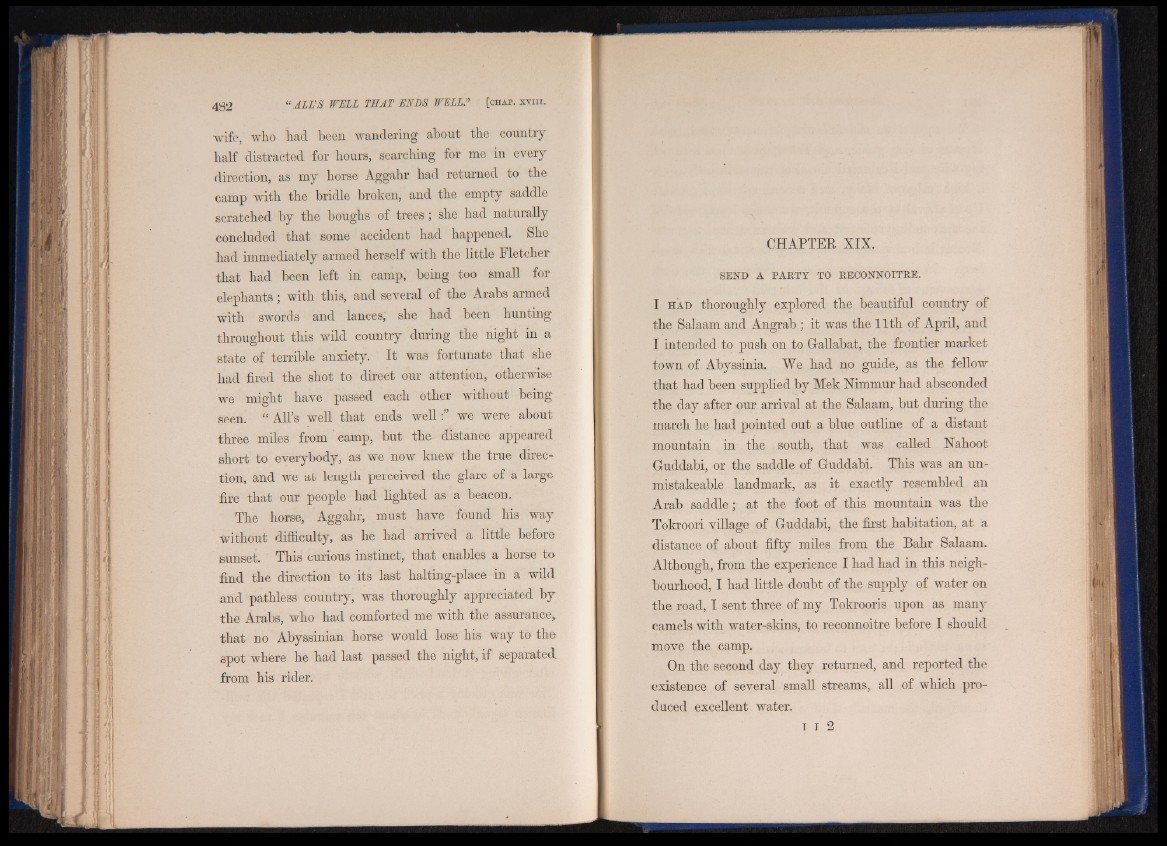
wife, who had been wandering about the country
half distracted for hours, searching for me in every
direction, as my horse Aggahr had returned to the
camp with the bridle broken, and the empty saddle
scratched by the boughs of trees; she had naturally
concluded that some accident had happened. She
had immediately armed herself with the little Fletcher
that had been left in camp, being too small for
elephants; with this, and several of the Arabs armed
with swords and lances, she had been hunting
throughout this wild country during the night in a
state of terrible anxiety. It was fortunate that she
had fired the shot to direct our attention, otherwise
we might have passed each other without being
seen. “ All’s well that ends we l lwe were about
three miles from ' camp, but the distance appeared
short to everybody, as we now knew the true direction,
and we at length perceived the glare of a large
fire that our people had lighted as a beacon.
The horse, Aggahr, must have found his way
without difficulty, as he had arrived a little before
sunset. This curious instinct, that enables a horse to
find the direction to its last halting-place in a wild
and pathless country, was thoroughly appreciated by
the Arabs, who had comforted me with the assurance,
that no Abyssinian horse would lose his way to the
spot where he had last passed the night, if separated
from his rider.
CHAPTER XIX.
SEND A PARTY TO RECONNOITRE.
I had thoroughly explored the beautiful country of
the Salaam and Angrab ; it was the 11th of April, and
I intended to push on to Gallabat, the frontier market
town of Abyssinia. We had no guide, as the fellow
that had been supplied by Mek Nimmur had absconded
the day after our arrival at the Salaam, but during the
march he had pointed out a blue outline of a distant
mountain in the south, that was called Nahoot
Guddabi, or the saddle of Guddabi. This was an un-
mistakeable landmark, as it exactly resembled an
Arab saddle; at the foot of this mountain was the
Tokroori village of Guddabi, the first habitation, at a
distance of about fifty miles from the Bahr Salaam.
Although, from the experience I had had in this neighbourhood,
I had little doubt of the supply of water on
the road, I sent three of my Tokrooris upon as many
camels with water-skins, to reconnoitre before I should
move the camp.
On the second day they returned, and reported the
existence of several small streams, all of which produced
excellent water.
T I 2